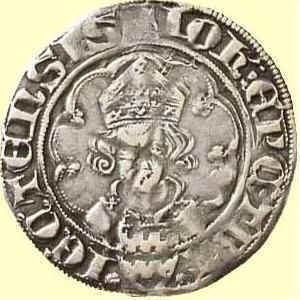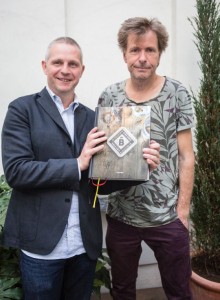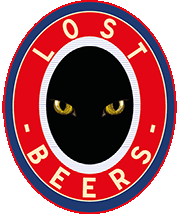Fact check: The Belgian Beer Book
 The Belgian Beer Book is an impressive edition. With 704 full-colour pages, it weighs 2 kilos. The book that Belgian beer culture and tradition deserves, you’d say. Last September, when it came out, I happened to meet one of the authors, Luc de Raedemaeker. He had the book with him, he was barely able to carry it. I opened the book and immediately I broke out in a cold sweat. It contains the worst collection of glaring bollocks on beer history I’ve ever seen put together.
The Belgian Beer Book is an impressive edition. With 704 full-colour pages, it weighs 2 kilos. The book that Belgian beer culture and tradition deserves, you’d say. Last September, when it came out, I happened to meet one of the authors, Luc de Raedemaeker. He had the book with him, he was barely able to carry it. I opened the book and immediately I broke out in a cold sweat. It contains the worst collection of glaring bollocks on beer history I’ve ever seen put together.
Trust me, I don’t want to become a Mr. Negative who has to find fault in everything. So first of all: Belgian beer culture is the best in the world. Nowhere else so much beer pleasure and beer variety has been preserved. Belgium on its own has maintained various brewing methods and beers that otherwise would have been lost forever. Despite all Jupiler lager and crowds of beer tourists (try to find a street in Bruges without a tourist beer shop), the good Belgian beer pub remains an oasis and a safe haven where you can find refuge when times are rough. A great beer culture deserves well written history. So why doesn’t Belgium get just that? The Belgian Beer Book contains 35 pages devoted to ‘Beer history’. 35 pages of utter bogus.
Naturally, they start with the eternal statement that Medieval people drank beer because the water was too dirty, ‘rivers, ditches and canals were open sewers’. Which isn’t true. (It isn’t? No. I’ll get back to that sometime.)[1] Then, authors De Raedemaeker and Verdonck continue with monks, because abbeys ‘became the knowledge centre of the beer world’. Interesting, because I’ve never seen any Medieval treatise on beer written by monks. Except one in which monks call Belgian beer ‘twice cooked Meuse water’, which wasn’t a compliment. I’ll get back to that sometime too.
Of course duke John I of Brabant gets a name check as ‘Jan Primus’, but that’s a fairy tale that I’ve dealt with before. No, I’d like to discuss this particular passage:
‘Emperor Charles IV (1316-1378) issued an edict under the name of ‘Novus Modus Fermentandi Cerevisiam’ in 1364. This new brewing method required the use of hops. The obligation applied to the Holy Roman Empire (the German Empire at the time), which also included the region of Imperial Flanders (the part of Flanders situated East of the River Scheldt). From then on, the beers from Imperial Flanders and Brabant would be different from those produced by the County of Flanders. The ‘gruitrecht’ remained in force for beers brewed to the West of the River Scheldt, as did fermentation bij souring.’[2]
Where to start? First, let’s go back to the original Latin text mentioned by De Raedemaeker and Verdonck. This is what the original document from 1364 says, a privilege granted by emperor Charles IV to John of Arkel, bishop of Utrecht:
‘Now however, in the past thirty or forty years the new method of brewing beer (‘novus modus fermentandi cervisiam’) has come to predominate so much with the inhabitants, namely by adding a certain herb called hops or ‘hoppa’, that the bishop of Utrecht is largely suffering a diminution in the revenues he was used to obtain from distributing the gruit’.[3]
Does this sound like an ‘edict’ for a brewing method? Does this sound like an ‘obligation’? No of course it doesn’t. The emperor merely describes what had been going on for decades. In the rest of the document he doesn’t oblige anyone to do anything, he just grants the bishop permission to levy a tax on hopped beer in the region where he has secular power (the so-called Episcopal principality of Utrecht), so that the bishop is compensated for the loss he suffers because people have started to buy less gruit from him. As you may know, gruit was a mixture of herbs used by brewers and brewsters before it became customary to put hops in beer.[4]
 Charles IV didn’t force anyone to use hops, on the contrary, people were already doing so. Also, the effects as described by Verdonck and De Raedemaeker are glaring nonsense. For starters, gruit wasn’t banned, not in the Principality of Utrecht nor anywhere else. As late as 1399 to 1412 the sale of gruit is attested in the city of Zwolle, which was in exactly that Principality. In Duisburg (Germany) they were still doing so in the year 1447.[5]
Charles IV didn’t force anyone to use hops, on the contrary, people were already doing so. Also, the effects as described by Verdonck and De Raedemaeker are glaring nonsense. For starters, gruit wasn’t banned, not in the Principality of Utrecht nor anywhere else. As late as 1399 to 1412 the sale of gruit is attested in the city of Zwolle, which was in exactly that Principality. In Duisburg (Germany) they were still doing so in the year 1447.[5]
The claim made about Flanders, Imperial Flanders and Brabant is even more drivel: those regions aren’t even mentioned in the document, which didn’t concern the Holy Roman Empire as a whole either. If you stop and think about it, it’s nonsense anyway: as if they didn’t start brewing with hops west of the Scheldt river. So where exactly are the big hop fields of Poperinge located? In Bruges a hopped beer is found as early as 1351.[6] The underlying suggestion is, that today’s feebly hopped sour Flemish red and brown beers were created by this legislation. In reality, these probably date back to the eighteenth and nineteenth century only (just like similar beers in England and the Netherlands), and as if there are no sour beers to be found east of the Scheldt. (…cough – lambic – cough…)
 I suppose this is my biggest problem with this fantasy story: that anyone, even without any historical knowledge, could have realised it’s bollocks. Instead Verdonck (author of twenty books, founder of beertourism.com) and De Raedemaeker (lecturer of ‘beer science’, member of the British Guild of Beer Writers, editor-in-chief of two magazines) copied this bogus story without a thought. And even then, the publisher’s website claims that De Raedemaeker’s ‘extensive beer knowledge and his critical spirit are valued around the world’. Don’t make me laugh…
I suppose this is my biggest problem with this fantasy story: that anyone, even without any historical knowledge, could have realised it’s bollocks. Instead Verdonck (author of twenty books, founder of beertourism.com) and De Raedemaeker (lecturer of ‘beer science’, member of the British Guild of Beer Writers, editor-in-chief of two magazines) copied this bogus story without a thought. And even then, the publisher’s website claims that De Raedemaeker’s ‘extensive beer knowledge and his critical spirit are valued around the world’. Don’t make me laugh…
Meanwhile, that quote ‘novus modus fermentandi cervisiam’ and that story of the left and right bank of the Scheldt are now to be found on the tourist website visitflanders.com, and it already featured in the book that came with the tv series Tournée Générale. Through the latter, it even ended up in a place where it belongs even less, in a scientific work![7]
With the utter bollocks The Belgian Beer Book contains on beer history, I could easily fill another four ‘Fact check’ articles. And maybe I will. In the meantime, it keeps me alert as well: if I’m so critical of others, I should also be critical of myself. From time to time I catch myself making mistakes in articles. I keep doing my best to not just debunk bogus stories, but also to not spread new mistakes…
[1] In the meantime, you can read Martyn Cornell’s findings on this matter: http://zythophile.co.uk/2014/03/04/was-water-really-regarded-as-dangerous-to-drink-in-the-middle-ages/.
[2] Erik Verdonck en Luc De Raedemaeker, The Belgian Beer Book, Tielt 2016, p. 46.
[3] John Beckmann, A History of Inventions and Discoveries, volume IV, Londen 1814, p. 337. My translation from Latin.
[4] The ease with which gruit was replaced by hops, proves that gruit can’t have been much more that a mixture of herbs, although there are some clues that the sale of gruit was accompanied by more activities that required kettles and fuel.
[5] R.E. Kistemaker en V.T. van Vilsteren (editors), Bier! Geschiedenis van een volksdrank, Amsterdam 1994, p. 24-26; G. Doorman, De Middeleeuwse brouwerij en de gruit, Den Haag 1955, p 40.
[6] Doorman, De Middeleeuwse brouwerij en de gruit, p. 17, 79.
[7] Geert Degrande, Tournée Générale. De geheimen van het Belgisch bier, Leuven 2009, quoted in: Eline Poelmans en Johan F.M. Swinnen, ‘A brief economic history of beer’, in: Johan F.M. Swinnen (red.), The economics of beer, Oxford / New York 2011, p. 3-28, here p. 9.






Leave a Reply